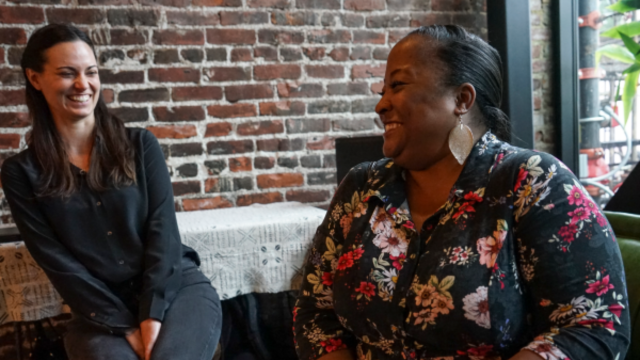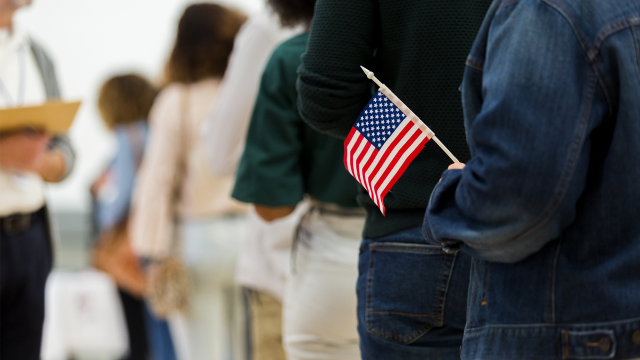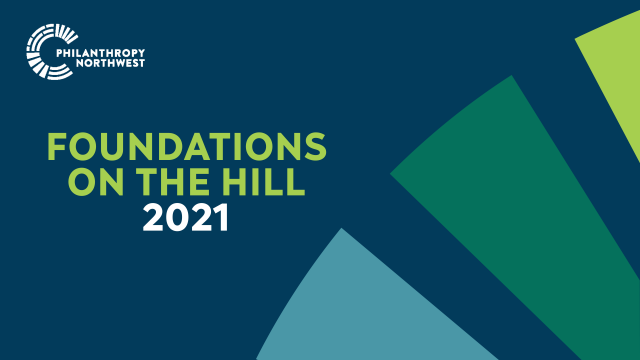No matter which candidates any of us favored, from the presidential race on down the ballot, this election has cast a harsh light on the wounds and weaknesses of our democracy. Just one indication: A New York Times/CBS News Poll conducted just before Election Day 2016 revealed that “an overwhelming majority of voters are disgusted by the state of American politics, and many harbor doubts that either major-party nominee can unite the country after a historically ugly presidential campaign.”
This deep (and fully bipartisan) unhappiness with our political and governing institutions was never going to be cured by a single election, regardless of the outcome. While elected officials of both parties must certainly play a role in healing the deep wounds in our body politic, it is clear that they cannot do it alone. We all have to do our part — and that must include the philanthropic sector.
An Obligation to Respond
In 2014, Philanthropy Northwest, in partnership with the Kettering Foundation, published Philanthropy and the Renewal of Democracy: Is it Time to Step up our Game? In light of the surprising and often alarming events of the 2016 election cycle, we updated the monograph, including a new foreword by Remy Trupin, Philanthropy Northwest's Catalyst Fellow focused on advocacy and public policy.
In the context of the dangerous wounds that this election has revealed (and in fact deepened) in our body politic, we are hearing more and more philanthropists saying, “Yes, it is time to step up our game. American democracy is in crisis, and the field of philanthropy has an obligation to do all it can to respond.” We heard that most recently in our post-election webinar with two dozen Philanthropy Northwest members.
That isn’t to say that every philanthropic entity has to drop what they’re doing and make this work their highest priority, nor is it to say that any single philanthropic response is the right way to contribute to healing democracy. But as a privileged field within a suffering society, we have an obligation to take a hard look at our current practices and learn from each other how any of us can make a more effective contribution to healing our political culture.
There are countless opportunities to do this, and a deep reservoir of resources to help you do it. For anyone who believes that our governing institutions need to be reformed to make them more democratically responsive, for example, you might want to follow the Hewlett Foundation’s lead with its Madison Initiative, or subscribe to Hedrick Smith’s Reclaim the American Dream. Those choosing to respond with deeper engagement in policy formulation and advocacy should visit Philanthropy Northwest's digital resource center on advocacy, curated by Remy Trupin. Those best situated to contribute at the community level will find good tools and deep insights at the Community Democracy Workshop, while philanthropists interested in promoting democratic deliberation might either learn from or join the National Coalition for Dialog and Deliberation. This list barely scratches the surface of resources and connections available to philanthropists seeking ways to contribute more effectively to the healing of American democracy.
Introducing Democracy Northwest
To that end, Philanthropy Northwest is redoubling its own commitment to this work, primarily through a new initiative we’re calling Democracy Northwest. After an exploratory phase generously supported by The Boeing Company, Kettering Foundation, Kirkpatrick Family Foundation and Satterberg Foundation, we are launching Democracy Northwest in December as a resource for philanthropists seeking to contribute to strengthening democracy. We will recommend best practices and promising resources, as well as programming and consulting services designed to enable members and their boards to explore future opportunities for healing the wounds in our body politic.
We hope that Democracy Northwest might also serve as a learning lab for national conversations. Philanthropy Northwest is unique among regional associations in the breadth of our network's geography, the variety it encompasses and our capacity to work together. Our six-state region represents a cross-section of America: urban, rural, red states, blue states, international borders, high-skilled immigrants, refugees and asylum seekers, Native communities, public lands, mountains, valleys, rainforests and deserts. Yet we share a long-term vision, that Northwest communities have vibrant, healthy futures that honor our past, our people and our cultures. Together, we can incubate and activate ideas, innovate and take thoughtful risks, assess and learn from the results as we seek to strengthen our democracy regionally and nationally.
Please stay tuned for further details about how you can contribute to this crucial effort. Meanwhile, since Democracy Northwest is intended to model the democratic values it promotes, we welcome your suggestions about how this initiative can be most helpful to you or your grantees. You can do that immediately by responding to this post or by emailing Remy Trupin at rtrupin@philanthropynw.org.
Daniel Kemmis is a senior advisor with The Giving Practice, Philanthropy Northwest's national consulting team, and author of Philanthropy and the Renewal of Democracy: Is It Time to Step Up Our Game?


